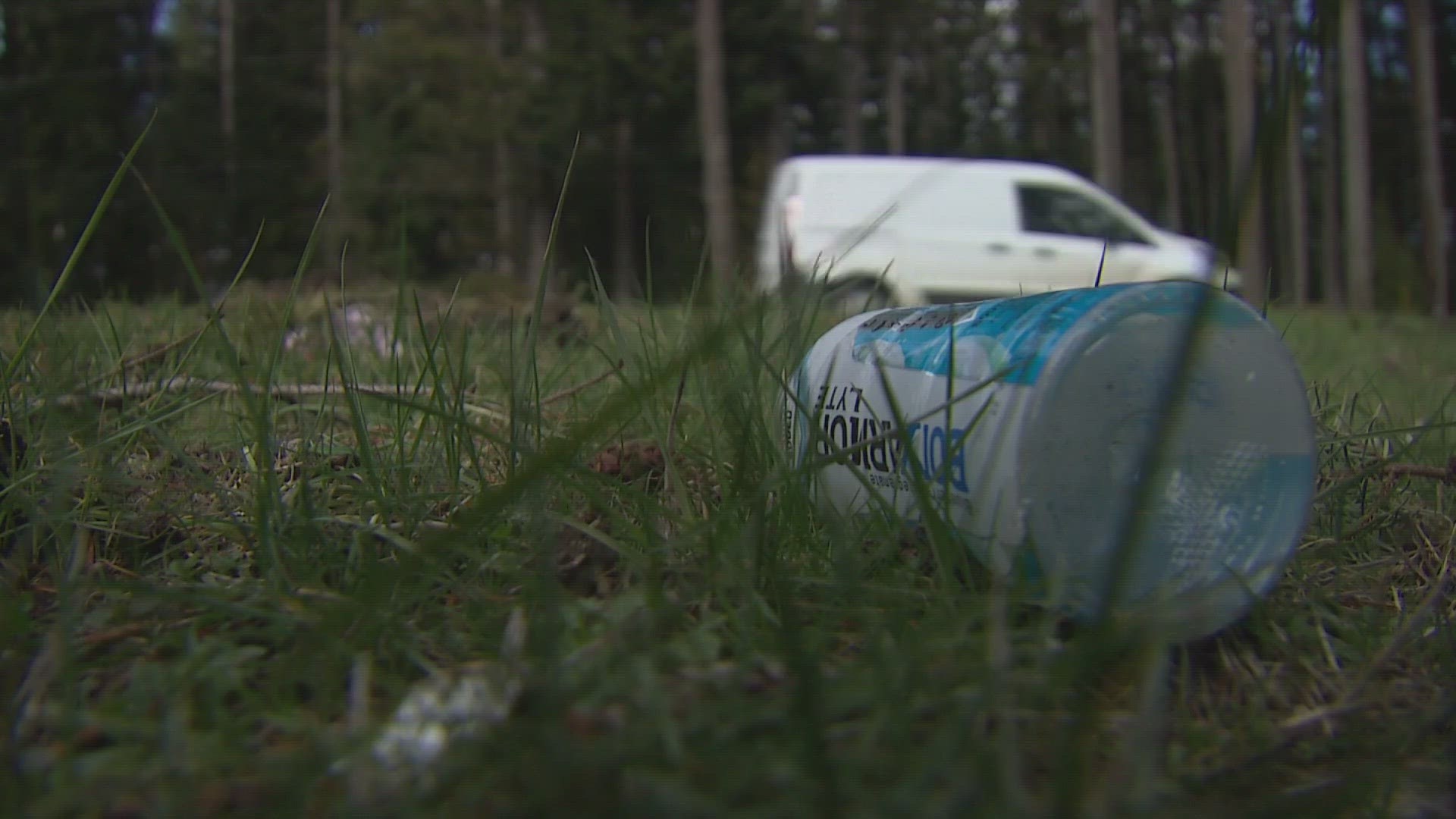PORT ORCHARD, Wash. — Last Thursday, the Department of Ecology released a report showing a growing amount of litter being collected in Washington’s Northwest region.
Caitlin Newman, who works for Kitsap County Public Works, says while there has been an increase in littering, regions could also be trying to get back on track after the pandemic made the previous methods of waste collecting too difficult.
“In Kitsap County, we used to have inmates cleaning up litter full-time in our community, and with the health restrictions, they weren’t able to go out,” Newman said. “So there was an accumulation of litter, not necessarily that people were littering more, but it was building up.”
But the data in the report may not show the full scope of littering in the region.
According to the report, Kitsap cleaned almost twice as many illegal dumps as Snohomish, despite Kitsap only having about one-third of the total pounds of litter compared to Snohomish.
But Newman says there may there’s a reason why Kitsap’s numbers look so inflated.
The Department of Ecology explained the data used in the report comes from cleanup work that is funded by their department, and cleanup work that doesn’t use those funds isn’t reflected.
“We report our results to Ecology only when we’re spending Ecology’s money,” she said. “We haven’t spent all of our money yet for the biennium, so we’re still reporting, whereas other counties might have spent their funding very quickly and then they stopped reporting their impacts.”
Newman says she’s seen success in cleaning up Kitsap, thanks to community support and volunteers, and community members have also seen the impact.
Now she hopes collecting data in the future won’t be so reliant on who’s paying for the cleanup, because it paints an incomplete picture of the widespread problem.
“Even if counties aren’t reporting all of their data to Ecology because of funding reasons, I think there are other reasons to collect that data as well, so we truly get a snapshot of litter across the state.”
The state is currently putting together a massive litter study. It’s been in the works for the past two years, and Newman says it scientifically assesses Washington’s litter problem. It’s due to come out later this year.

